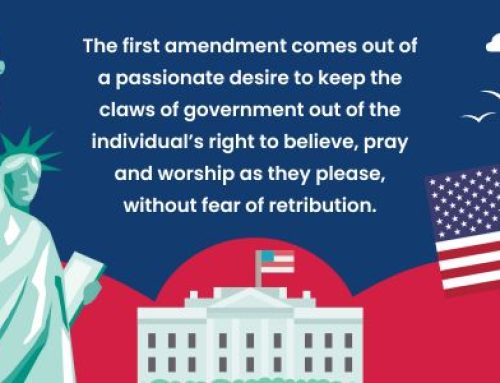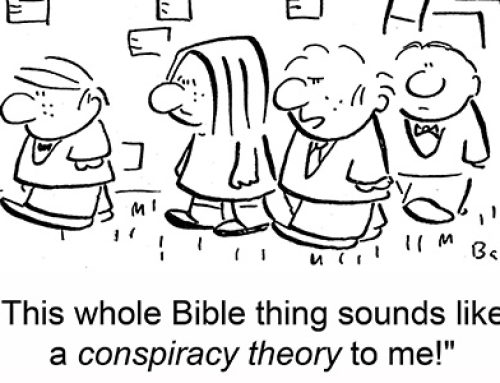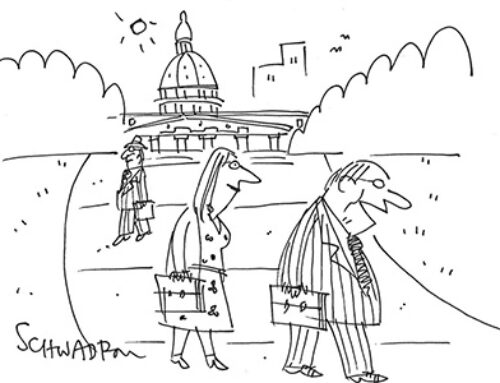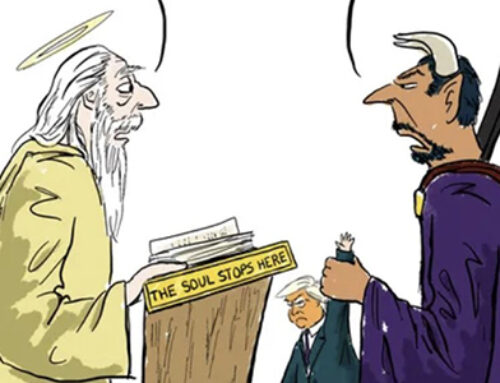I recently read an article in the November issue of The Christian Century magazine, titled “The Quiet Rise of Christian Dominionism” by Dr. Keri Ladner. Ladner’s article took me back to my evangelical days. It was about the Christian Right’s growing political influence in our nation. She expressed this dominionism movement through the evangelical theology of dispensationalism, and the notion of pre and post millennialism. I haven’t heard those concepts in a long time. Though I will say, I have been asked on occasion, am I a pre or postmillennialist.
 Dominionism came out of the theological work of Rousas John Rushdoony in the mid 20th century. Rushdoony developed a theological concept called Christian Reconstructionism. This is the belief that Christians will reconstruct society based on the mosaic law and essentially ignore the US constitution. Their thinking is that the US Constitution was written by men while Christian dominionism is an ordained belief that the Bible is God’s Holy Word and ultimate truth. This dominionism is postmillennial and argues that Christians must reform society according to the Mosaic law and bring it to fruition before Christ can return.
Dominionism came out of the theological work of Rousas John Rushdoony in the mid 20th century. Rushdoony developed a theological concept called Christian Reconstructionism. This is the belief that Christians will reconstruct society based on the mosaic law and essentially ignore the US constitution. Their thinking is that the US Constitution was written by men while Christian dominionism is an ordained belief that the Bible is God’s Holy Word and ultimate truth. This dominionism is postmillennial and argues that Christians must reform society according to the Mosaic law and bring it to fruition before Christ can return.
Let me explain. Dispensationalism is an evangelical theological concept that addresses issues concerning the end times. It argues for both a literal interpretation of Old Testament prophecies involving ethnic/national Israel, and the idea that the church is a New Testament entity, distinct from Israel.
Premillennialism is the belief that Jesus will physically return to the Earth (the Second Coming) before the millennium, a literal thousand-year golden age of peace. Premillennialism is based upon a literal interpretation of Revelation 20:1–6 in the New Testament, which describes Jesus’s reign in a period of a thousand years. Simply put, Jesus will break into history and reappear at an unknown and unpredictable time.
Postmillennialism is the belief that Christ returns after a period of time, but not necessarily a literal 1,000 years. Those who hold this view do not interpret unfulfilled prophecy literally. They believe that Revelation 20:4-6 should not be taken literally. Hence, Jesus will reappear once and only after the Kingdom of God is established here on earth.
As Keri Ladner claims in her article, “…this reconstructed society would implement Mosaic law, with Christ as king over what would have become a Christian Nation. Without government welfare, churches would carry the responsibility of aid to the poor, and without public schools, families would be responsible for their own children’s education. The economy would operate without any government regulation, meaning present laws requiring the integrity of consumer goods, protecting workers’ rights, and disallowing exploitative financial practices would no longer be in effect. Because in a reconstructed America, Christians would have brought God’s Kingdom to earth through the implementation of Mosaic law, these protections would not be necessary.”
Does that sound a little scary to you?
Read on. Rushdoony’s movement has developed into what he calls the National Apostolic Reformation (NAR). A prominent teaching of the NAR dominion movement is known as the Seven Mountain Mandate. This mandate maintains that there are seven mountains of culture that Christians will control: religion & church; family; education; government; media, arts & entertainment; and business & economics.
Ladner says that NAR is a fast-growing movement that has its main influence from the Bethel Church in Redding, California and the International House of Prayer in Kansas City, Missouri. These two churches support a strong influence of American Evangelism. Ladner goes on to say that “…because the emphasis in the NAR is on divine revelation that prophets receive directly from God, many of its leaders have little or no formal theological training….NAR leaders often merge a premillennial theology of impending doom with a postmillennial one of attaining dominion over society without noting any contradiction.”
One of NAR’s prominent leaders is Rafael Cruz. Yes, the father of Ted Cruz. Rafael confirms that the NAR movement is dependent on priests and kings. Rafael believes that many are called to be priests and serve the church, but his son, Ted Cruz, is meant to serve God as King in the halls of government.
There seems to be little evidence that Ted Cruz is consciously working for the title of King. As Ladner points out, “…Cruz gives no indication of personally adhering to the NAR, and his church in Houston does not have the specific markers of an NAR church.” Yet, there are a couple of markers that might indicate Cruz’s true path. His personal pastor, Paula White, is a NAR devotee, and Cruz is often seen with other conservatives like Rick Perry and Josh Hawley who sometimes hang around NAR events.
What does all of this mean? As Ladner points out, “…these Christians are hard at work trying to create their version of a Christian government.” What do you think, will they succeed?




